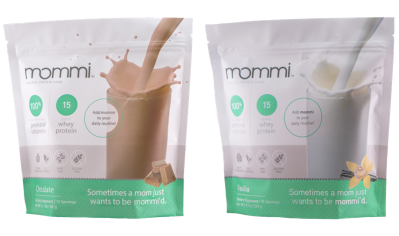Dispatches from Experimental Biology 2017
US pregnant women falling short of omega-3 intake recommendations

DHA and EPA (eicosapentaenoic acid) play critical roles for growth and development, with recent analyses indicating significant reductions in early preterm birth, a reduced risk of asthma in the children, and improved attention in children.
Data presented at the Experimental Biology 2017 meeting in Chicago this week by Dr Susan Mitmesser, Sr Director of Nutrition and Scientific Affairs at The Nature’s Bounty Co, indicated that the mean intakes of eicosapentaenoic acid (EPA) and docosahexaenoic acid (DHA) from foods alone were 30 and 59 mg per day, respectively.
The Dietary Guidelines for Americans (2015–2020) recommend the consumption of approximately 250mg EPA and DHA per day for the general population; while pregnant and lactating women are recommended to consume at least 8 and up to 12 ounces in order to obtain nutrients (specifically DHA) for improved infant health.
“These results suggested that many pregnant women consume less EPA and DHA from foods than the DGA recommendation,” wrote Dr Mitmesser and Dr Jamie Zhang in The FASEB Journal. “Increasing seafood consumption or considering EPA and DHA supplementation during this very important life stage may be an effective compliment if food intakes cannot be met.”
Study details
Drs Mitmesser and Zhang analyzed data from 805 pregnant women captured by the National Health and Nutrition Examination Survey (NHANES) cycles 2001–2006. Sixty percent of the women were non-Hispanic White, 21% were non-Hispanic Black, and 19% were Mexican American.
Preliminary results showed that the mean intakes of EPA and DHA from foods alone were 30 and 59 mg per day, respectively.
Speaking with NutraIngredients-USA at Experimental Biology 2017 Dr Mitmesser said: “The novelty of this study is that there was no intake data for pregnant women over 14 years of the NHANES data. We found that pregnant women were not reaching the recommendations. They were not even close. And over 14 years, there has only been a 12 mg increase in EPA and DHA intakes. That’s pitiful.
“There is a need for filling the gap, and women need to know where to get their omega-3s, why they are important, and how to fill the gap because you cannot get it all from the diet.”
Scientific support

The study’s findings echo results published recently in Nutrients. Researchers from the University of Nebraska Medical Center reported that Intakes of DHA (docosahexaenoic acid) in pregnant and non-pregnant women were only 66 mg/day and 58 mg/day, respectively.
These intakes did not include dietary supplements, but additional data indicated that only 1.8% of non-pregnant and 9.0% of pregnant women took EPA and/or DHA supplements.
Source: The FASEB Journal
April 2017, Volume 31, Number 1, Supplement 788.29
“Dietary Intakes of EPA and DHA Omega-3 Fatty Acids among U.S. Pregnant Women”
Authors: Z. Zhang, S. Mitmesser
















